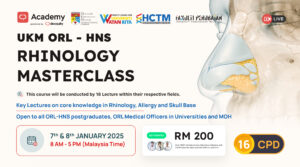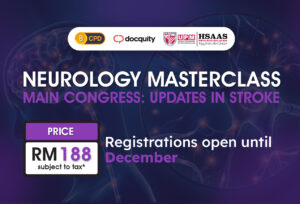
The Ocular Emergencies and Glaucoma Course
The Ocular Emergencies and Glaucoma Course
This interactive learning course series provides a comprehensive overview of common ocular emergencies, including trauma, eye infection, and acute glaucoma.

Overview of The Ocular Emergencies and Glaucoma
The Ocular Emergencies and Glaucoma Course enhance healthcare professionals' skills in diagnosing and managing acute eye conditions and glaucoma. It provides comprehensive training on ocular emergencies, eye infections, and glaucoma diagnosis techniques. The course covers medical, surgical, and laser treatments for glaucoma, emphasizing the importance of follow-up and patient education. Combining didactic and hands-on training, it builds practical skills, confidence, and competence in responding to ocular emergencies and managing glaucoma in clinical settings.
Target participants
Participating in ocular emergency and glaucoma courses equips general practitioners to deliver enhanced care, promptly recognize and manage urgent eye conditions, provide comprehensive healthcare, and collaborate effectively with eye care specialists.
Ophthalmologists can improve their skills in managing urgent eye conditions and treating glaucoma through specialized ocular emergency and glaucoma courses, leading to better patient outcomes and enhanced collaboration with healthcare professionals.
Emergency doctors can acquire vital knowledge and skills in recognizing and managing urgent eye conditions by enrolling in ocular emergency and glaucoma courses.
What will you learn from this course?
Ocular Emergencies
Eye emergencies encompass blunt trauma, penetrating trauma, chemical injuries, foreign objects in the eye, corneal injuries, infections, and medical conditions like blood clots. Immediate medical care is crucial as these conditions, if left untreated, can result in vision loss due to the delicate nature of the eye.
Introduction to key glaucoma diagnosis
Glaucoma, a leading cause of blindness, can result in significant morbidity and reduced quality of life. This module covers glaucoma assessment, investigations, and the importance of regular eye tests for early detection and treatment. Primary care physicians play a crucial role in diagnosing glaucoma, referring patients with positive family history or suspicious findings, reinforcing medication adherence, and recognizing adverse reactions.
Glaucoma treatment and systemic implications
Glaucoma medications may have systemic effects, especially in elderly patients with multiple chronic medical conditions and systemic medications. While beta-blocking ophthalmic agents are generally safe, they can potentially cause bronchospasm, worsen heart block, exacerbate congestive heart failure, or induce central nervous system effects in certain patients.
Course Reviews
I really appreciate the Ocular Emergency Course. It's excellent course and I would like to refer Docquity courses to my colleague.

Dr. Thant Zin
The comprehensive knowledge and practical skills I acquired through the course have greatly enhanced my confidence in effectively managing both eye emergencies and glaucoma cases.

Dr. Raja Munirah
Meet your instructors

Dr. Anindya Anuradha
Dr. Anindya Anuradha, a consultant ophthalmologist and HOD at Bhagwaan Mahavir Medica Super Specialty Hospital, established and managed the comprehensive Ophthalmology Department with specialized subspecialties. She also established the Centre for Ophthalmic Research and Training (CORT) and the first surgical training center in Jharkhand. Dr. Anuradha has received numerous accolades, including gold medals and awards for academic achievements and quiz competitions.
Frequently Asked Questions





